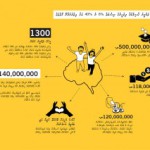The Minister of Gender and Family, Aishath Mohamed Didi, faced tough criticism on Friday over Maldives’ ban on the election of women to the presidency and vice-presidency
She described the prohibition as “odd†and “an anachronism†as she presented reports to the UN General Assembly’s Committee in New York on the Elimination of Discrimination against Women.
One expert said Luxembourg was the only other country with such a prohibition, but it was a monarchy where the Head of State, regardless of gender, had little political power, whereas the opposite was true of the Maldives President. The ban merely reinforced gender stereotypes and justified discrimination on the basis of gender.
Echoing that sentiment, another expert noted that Islamic countries like Pakistan and Bangladesh had elected female leaders, pointing out that neither Sharia nor the Koran prohibited women from holding political office. The Maldives’ next country report should show that the country’s reservations regarding political and public life, as well as marriage and family life, had been lifted.
The Minister said the government was considering the withdrawal of the reservations and had proposed to remove the constitutional provision barring women from holding the country’s highest political office. Committee members were invited to discuss the matter with Maldives legislators and to push for those changes before the nation’s Parliament.
Other questions discussed today focused on why women could not become judges, and the level at which debate was taking place to change that; the legal implications of gender discrimination in the absence of a women’s rights law; and the changing mandate of the high-level Gender Equality Council.
She said there was a provision for a quota permitting the President to appoint eight parliamentarians, including four women and four men, adding that she had advocated for the quota as a necessary temporary measure but had met resistance, with political factions claiming that women were not fit to hold the presidency, ministerial or parliamentary positions. Others claimed that quotas discriminated against men.
The Minister said the question of eliminating the gender barrier in the judiciary was under consideration by ministers and judges. Debate was also ongoing at the community level and in the media, according to another delegate. The Justice Minister had announced the Government’s intention to appoint female judges under the mandate of the Judicial Service Commission.
However, the Minister acknowledged that judges and magistrates had not been sensitised to gender issues, partly because their heavy case loads made it difficult for them to participate in programmes run by the Ministry of Gender and Family. New training starting in





